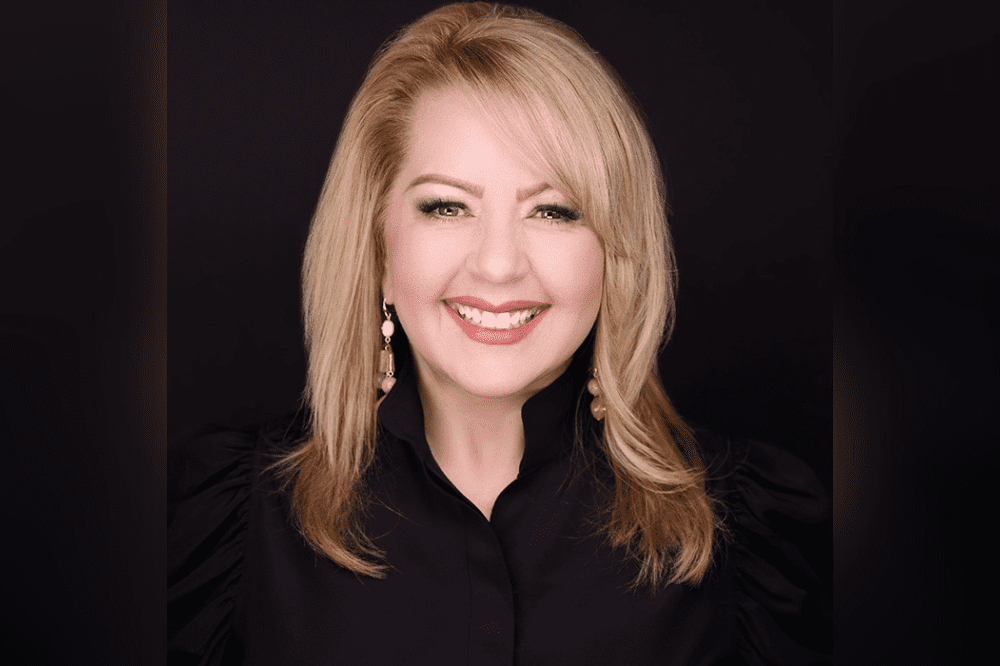Chubb arm’s new leader on a "wonderful gift"

Chubb, a global insurer with 34,000 employees in 54 countries, launched Blink in February 2021 as a digital platform designed to sell select insurance coverages to younger customers, starting with personal cyber protection. The platform joined a marketplace including rivals such as Nationwide and Swiss Re’s iptiQ that have launched similar platforms. They all have a collective eye on a younger client base while competing with newer digital insurers who are targeting the same demographic.
Chubb does not yet disclose how many customers Blink has, citing the data as proprietary. The division has added several distribution partners since its launch, however, and it recently launched Blink Paycheck, a new income protection product designed to provide benefits of up to $2,500 per month if a person can’t work due to injury or illness and is under a doctor’s care.
Marshall, who became senior vice president and head of Blink in July, is focused on bringing Blink into its next phase of business.
“My job is to direct the strategy of Blink, as we go into the next stage of our evolution,” Marshall said.
Blink has devoted much of its attention so far on building its Blink Cyber product, and now, Blink Paycheck. There’s also a heavy focus on “forming our distribution strategy and our distribution channels, getting partners on board and reaching our customers where they are,” Marshall explained.
Before her current position, Marshall served as Blink’s vice president and head of distribution & marketing, and before that was vice president of business development for digital North America, commercial lines. She also held leadership roles at The Hartford and Travelers.
Partnerships help
Currently, Blink is distributed multiple ways, including direct to consumer and through partnerships with Waffle and the Hippo Insurance agency. There are roughly 12 partnerships so far, but Blink by Chubb is hoping to double that by the end of 2022, Marshall said, including a partnership agreement the company was expected to announce at Insuretech Connect 2022 in Las Vegas.
Partnerships are a particularly useful tool in today’s market, Marshall said.
“We did research early on before Blink was even known as Blink to really gauge what millennial buyers and digitally savvy consumers were looking for,” she said. “What they told us was they don’t wake up in the morning and say ‘Let’s go get some insurance.’ What they said was they are looking for an insurance offer that is aligned with something else they are doing so it’s relevant, it’s contextual and it supports a product or serves what they are already engaging in. Partners are a way to bring that all together for them so they can do multiple things in a single purchase experience.”
The platform itself is designed to be completely digital, from when a customer starts the insurance quote all the way through to getting the policy online and then using Blink’s self-service portal to file a claim. APIs are also a key technology element, designed to support easy partner integrations if partners want to create their own user interfaces. Blink also offers a multi-tenant experience or co-branded experience a partner can access where Chubb passes data from that partner into the quote, allowing a particular customer to simplify his or her purchase experience, Marshall said.
Always learning
Marshall explained that her primary focus in the insurance industry has always been on distribution and products. She has quickly gotten up to speed, however, on the technology side of things. This has allowed her to become an ambassador for Blink and the technology advantages and benefits it offers.
“It’s not just about purchasing that insurance policy or making your claim,” Marshall said. “All of those things are relevant, but, with Blink, we’re really looking to inspire the next generation, having them feel really connected to the insurance experience – not only when something bad happens but throughout the journey,”
Marshall added that she is a quick study and can help make the technology relevant with consumers and partnership clients alike.
“What I bring is this enthusiasm and this focus on inspiring our partners and helping them inspire their consumers toward making insurance that experience like they have with other retail products,” she said.
With legacy insurers increasingly competing with insurtechs in the digital distribution realm, which one is a better messenger for digital insurance? Marshall said they both are effective, because customers gain improved access to insurance regardless of whether it is from a digital carrier platform or insurtech.
A carrier such as Chubb, however, can become “an entity of choice” for digital cover, Marshall noted.
“We are an over 200-year-old company and we have a proven world-class claims service,” Marshall said. “We clearly understand how to manage our balance sheet and we are a proven entity.”





